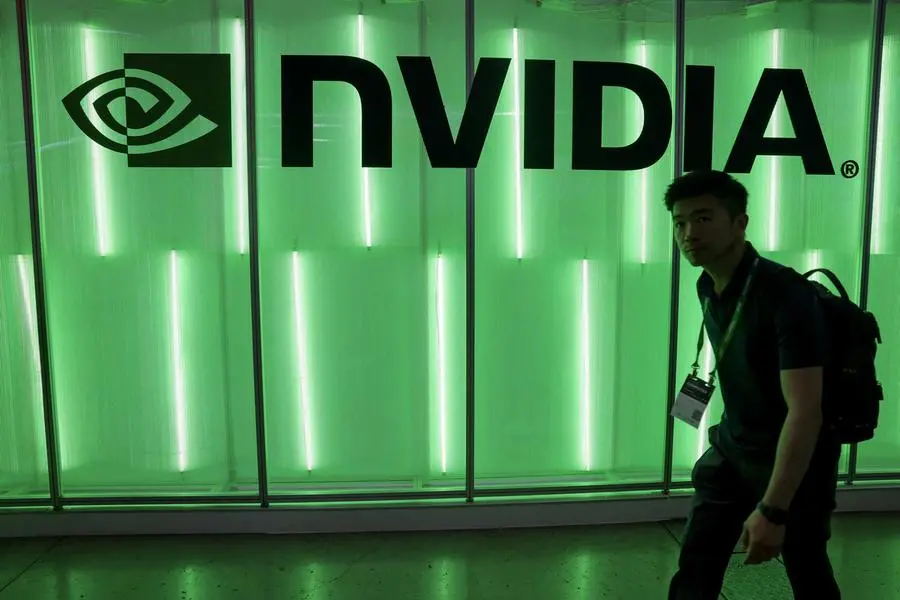PHOTO
Shares of Nvidia rallied to record highs on Wednesday, with the artificial intelligence chipmaker's valuation breaching the $3 trillion mark and overtaking Apple to become the world's second most valuable company.
Nvidia is preparing to split its stock ten-for-one, effective on June 7, a move that could increase its appeal to individual investors.
The surge in Nvidia's market value above Apple's marks a shift in Silicon Valley, which the company co-founded by Steve Jobs has dominated since it launched the iPhone in 2007.
Nvidia's stock rose 5.2% to end the day with a valuation of $3.012 trillion. Apple's market capitalization was last at $3.003 trillion after its stock climbed 0.8%.
Microsoft, based in Redmond, Washington, remained the world's most valuable company at $3.15 trillion as its shares climbed 1.9%.
Nvidia's stock has surged 147% so far in 2024, with demand for its top-of-the-line processors far outstripping supply as Microsoft, Meta Platforms and Google-owner Alphabet race to build out their AI computing capabilities and dominate the emerging technology.
It has rallied nearly 30% just since May 22, when Nvidia issued its latest stellar revenue forecast.
Optimism about AI lifted chip stocks broadly on Wednesday, with the PHLX chip index surging 4.5%. Super Micro Computer, which sells AI optimized servers built with Nvidia chips, climbed 4%.
Nvidia CEO Jensen Huang this week was the subject of wall-to-wall coverage on Taiwanese television and was mobbed by attendees when he visited the Computex tech trade fair in Taipei, where he was born before moving to the United States.
While Nvidia rides a wave of AI enthusiasm on Wall Street, Apple is struggling with weak demand for iPhones and tough competition in China, the world's biggest smartphone market.
Some investors also view Apple as lagging other technology heavyweights as they rush to build AI features into their products and services.
Analysts' projections for Nvidia's future earnings have outpaced its stellar stock gains. Nvidia is trading at 39 times expected earnings, making it less expensive on that basis than a year ago, when it traded at over 70 times expected earnings, LSEG data showed.
(Reporting by Noel Randewich; Editing by Nick Zieminski and Richard Chang)




















